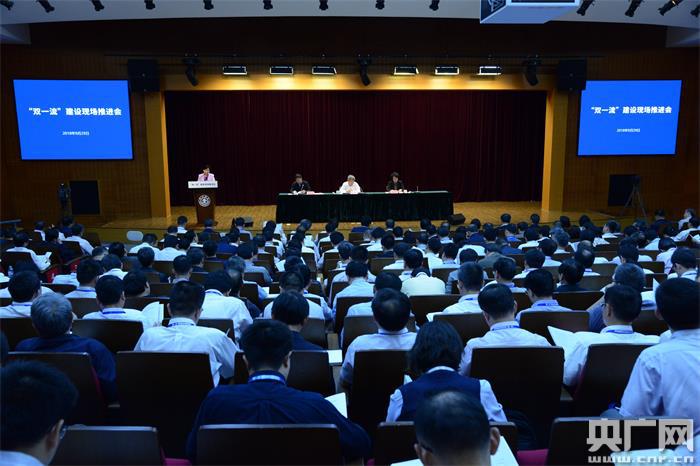
On September 28-29, the MOE held a meeting in Shanghai to discuss practical aspects of implementing the “Double First-Class” Initiative, to incorporate guidance from the recent national education conference and accelerate the establishment of “Double First-Class” universities and disciplines with distinctive strengths. Mr. Baosheng Chen, Minister of Education and Secretary of the MOE CPC Leadership Group, and Mr. Yong Ying, Mayor of Shanghai and Deputy Secretary of the CPC Shanghai Committee, attended the meeting and each delivered speeches.
Minister Chen pointed out that the statement of the General Secretary of the CPC Central Committee Jinping Xi and guidance from the national education conference had both had profound implications for the “Double First-Class” Initiative. Universities involved in the Initiative were expected to play a leading role in the implementation of Xi’s statement and conference guidance. They needed to acquire a deep understanding of the fundamental task of nurturing rounded youth prepared to join the socialist cause, the general direction of improving education to better serve economic and social development, the basic path to achieve top level education through developing distinctive strengths, and the essential mission of ensuring full leadership by the Party. They also needed to realize that China’s higher education was on the verge of reaching world-class status and should therefore be prepared to face unprecedented challenges, which depended on the accelerated development of the “Double First-Class” Initiative.
Chen stressed that the overall implementation of the Initiative had got off to a good start. Moving into the next phase, universities had to set reliable, eligible, truthful, distinctive, competitive, productive and sustainable goals and uphold the principle of “balanced quantitative and qualitative education growth driven by reform and dominated by higher education institutions with distinctive strengths”, accelerating their development based on institutional innovation to deepen reforms, serve needs and expand cooperation.
Specifically, universities had to:
(i) Nurture high quality professionals by focusing resources on undergraduate programs while accelerating the development of structurally optimized, excellent graduate programs with broad stakeholder engagement.
(ii) Serve major needs by detecting stumbling blocks to achieving higher quality training, identifying priorities in scientific research and difficulties in social services and creating new channels for cultural inheritance, to produce high quality human resources, research outcomes and services.
(iii) Improve innovation in scientific research by speeding up scientific research management and evaluation mechanisms in higher education institutions, to generate original and influential research outcomes and positive social impacts.
